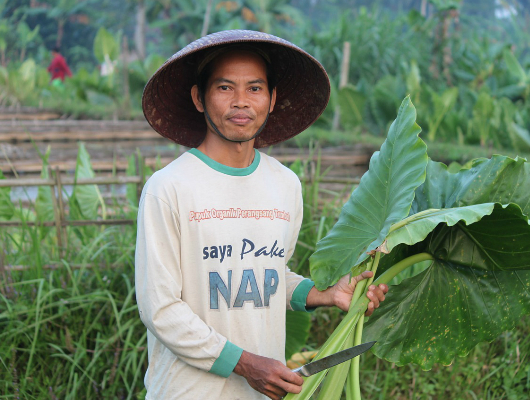How Farmers Following The SDGs Can Help End Hunger

The Sustainable Development Goals (SDGs) have been officially chosen and released with a target date of 2030. According to Farming First, “agriculture accounts for 37 percent of employment, 34 percent of land use, 70 percent of water use and up to 30 percent of greenhouse gas emissions.”
If agriculture can be made more efficient, we may have a shot at feeding everyone in the world, a number that will reach 9 billion in 2050.
Farmers following the SDGs can help end poverty and hunger, consequently reducing negative effects caused by these problems. They can also help fight climate change globally. Farming First talked to farmers to see what they had to say about what they needed most to help them reach goals that were attainable for them.
In Bangladesh, Anwar Hosen had been selling seed, fertilizer and crop protection without any formal kind of training. The Feed the Future initiative taught Anwar about high-quality agricultural inputs and was given more readily available access to these inputs. Anwar now understands the difference that high-quality seeds and fertilizer can make, as his clients have reported a higher crop yield.
In Cambodia, Chieng Sophat is a bean and cucumber farmer in the province of Battambang. Sophat has been farming since the 1980s and has always had trouble making money due to flooding that can often destroy an entire crop yield. Sophat notes that things are getting worse as climate change all over the globe intensifies.
Thanks to the project Cambodia HARVEST, Sophat has been shown ways to better manage the water on his farm. Through methods like raised plant beds and drip irrigation, which help get his crops through the dry season, Sophat has seen notable success.
He now has extra income from his higher crop yield that he is able to use to “pay for his children’s school and household improvements,” according to Impatient Optimists. Most of the world’s farmers live in developing countries, and growing agriculture has been proven to be twice as effective in reducing poverty compared to the growth of any other sector.
In order for us to be able to end global poverty and be able to feed 9 billion people by 2050, we must ensure that farmers have access to the knowledge and training that will allow them to increase the quantity, quality and diversity of their crops while using sustainable methods.
– Drusilla Gibbs
Sources: Farming First, Impatient Optimists
Photo: Pixabay
